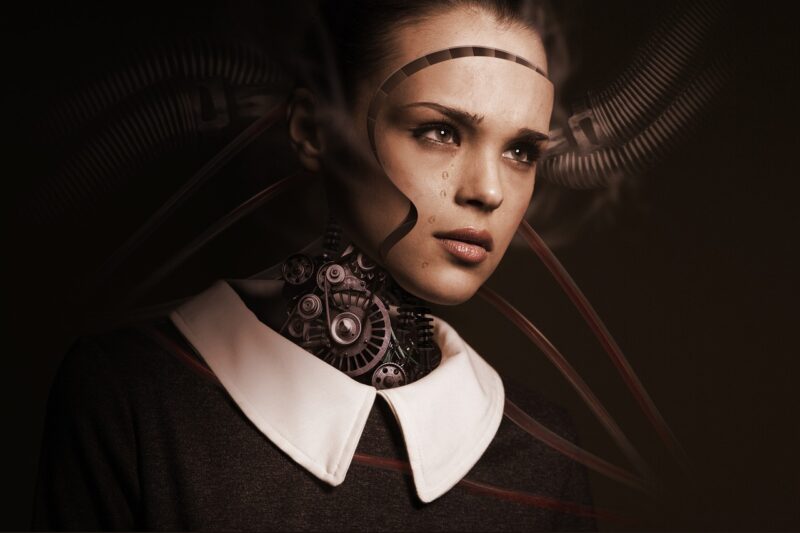The Rise of AI: Will Robots Replace Human Relationships?
November 18, 2024

In an age where artificial intelligence (AI) permeates our daily lives, from virtual assistants and chatbots to optimized algorithms guiding our social media feeds, the question arises: Will robots replace human relationships? This is not just a futuristic concern but a pressing issue as we explore the implications of AI development on interpersonal connections, emotional intelligence, and the nature of love itself.
1. Understanding AI and Its Role in Everyday Life
Artificial intelligence refers to the simulation of human intelligence in machines programmed to think and learn. Over the past few decades, we have witnessed an explosion of AI applications—from self-driving cars and intelligent home systems to sophisticated chatbots that can engage users in meaningful conversations. These technological advancements raise concerns and curiosities about their potential influence on human relationships.
While AI can mimic certain behaviors and even display some emotional responses through programmed algorithms, it lacks the genuine emotional depth that characterizes human interactions. Let’s delve deeper into how AI is shaping our relationships and whether it is destined to replace the emotional connections we forge with one another.
2. The Evolution of Human-Machine Interaction
The integration of technology in our social fabric has been gradual yet pervasive. The way we communicate, date, and relate to one another has significantly shifted due to technological influence. Consider the following:
- Social Media: Platforms like Facebook and Instagram allow people to connect across vast distances. However, these virtual connections often lack the depth of direct personal interaction, leading to shallow relationships.
- Online Dating: With the emergence of apps like Tinder and Bumble, seeking companionship has transformed. While these platforms facilitate interactions, the connections formed may not always translate to meaningful human experiences.
- Virtual Companionship: AI-driven virtual companions, or chatbots, created to offer support and conversation have surged in popularity. Applications like Replika provide users with an AI partner who learns from interactions but still lacks true understanding and empathy.
As the lines blur between human and machine-generated interactions, it is crucial to understand how these changes impact our emotional well-being.
3. The Psychological Impact of AI Relationships
As AI technology becomes increasingly sophisticated, many individuals find solace in interactions with robots or virtual companions. The psychological effects can be staggering:
- Dependency: Many users may develop an emotional dependency on their AI companions, leading to feelings of loneliness and detachment from real-world relationships. When a person becomes accustomed to conversing with an AI that offers immediate, non-judgmental responses, it can create an unhealthy reliance on technology over personal connections.
- Altered Expectations: AI can provide unwavering support and validation. When individuals begin to compare human relationships to AI interactions, it can result in unrealistic expectations from their partners or friends, ultimately fostering dissatisfaction in human relationships.
- Social Skills Decline: As individuals lean towards virtual interactions, their face-to-face communication skills may decline, making it challenging to engage meaningfully with others in real-life situations.
These psychological factors illuminate the necessity of balancing AI interactions with human relationships.
4. Can AI Replace Human Relationships?
Though AI can enhance our lives, claims that it will fully replace human relationships remain dubious. Here’s why:
- Emotional Depth: AI may simulate empathy, but it lacks consciousness; it does not experience love, joy, or sorrow. Human relationships are founded on shared emotional experiences that AI cannot replicate.
- Ethical Considerations: The idea of replacing human relationships with AI raises ethical concerns, such as the implications on human rights, personal autonomy, and societal cohesion. AI cannot replace the moral and ethical fabric that exists between individuals.
- The Unpredictability of Human Emotion: Human relationships are often driven by spontaneity, intuition, and unpredictability—elements that artificial intelligence, governed by predetermined algorithms, cannot reproduce.
While AI can enhance our experiences and even provide companionship, it cannot substitute the unique emotional bonds that constitute human relationships.
5. Harnessing AI for Positive Outcomes in Relationships
Rather than viewing AI as a competitor, we can leverage its capabilities to strengthen and enrich human relationships. Here are some possibilities:
- Facilitating Connections: AI can help people engage with others by suggesting hobbies, activities, and groups that align with their interests—enhancing social networks and bridging relationships.
- Therapeutic Assistance: AI-based apps can offer valuable support for individuals seeking guidance or assistance in their relationships, such as conflict resolution or communication skills improvement.
- Promoting Healthy Interactions: AI can analyze interactions and provide feedback on communication styles, helping individuals develop stronger bonds and emotional intelligence.
Utilizing AI as a tool to augment our relationships could lead to enriched human connections instead of diminishing them.
6. Conclusion: A Balanced Future
As we navigate the complexities of our evolving relationship landscape dominated by AI, it’s crucial to cultivate a balance. AI can serve to enhance human relationships by fostering communication, engagement, and emotional growth.
In conclusion, while AI’s role in our lives is expanding, the irreplaceable essence of human relationships remains. It is vital that we harness technology wisely to enable, not replace, our most profound connections. The significant question for the future is not whether robots will replace human relationships but how we can work alongside AI to enhance our interactions with one another, preserving the irreplaceable quality of genuine human connection.







